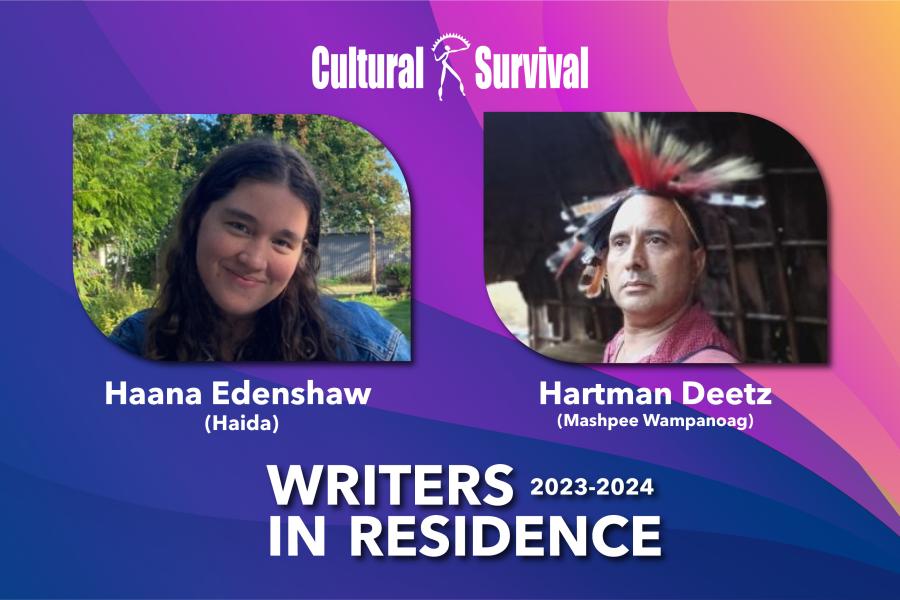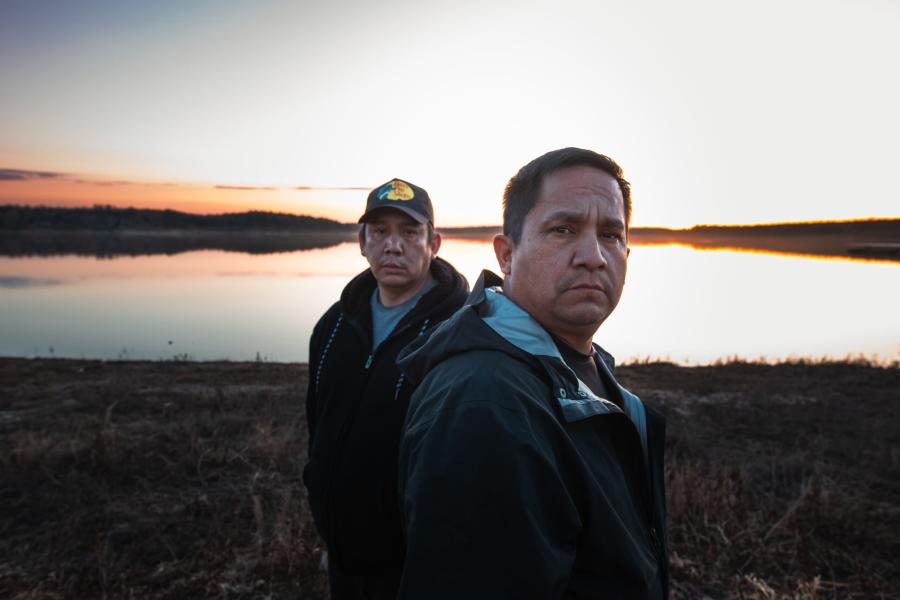At the recent World Conference Against Racism (where indigenous peoples had a particularly strong showing), Canada's National Chief Matthew Coon-Come reiterated his call for indigenous peoples to enjoy just and equitable treatment within the states they now live in as vulnerable and threatened nations. Said Coon-Come: "We have been deprived of our means of subsistence and our lands, and are being denied our right to benefit fully and equitably from our natural wealth and resources.... Our communities are overcrowded. They often lack adequate sanitation and clean drinking water. Many people are homeless.... Often when we protest and assert our rights against our marginalization, landlessness, and dispossession, the state has used force against us -- even lethal force.... If indigenous peoples are not afforded adequate access to lands and resources, our societies face economic, political, and cultural extinction. As some of the most marginalized and dispossessed peoples in the world, we must be able to insist, from a position of enforceable rights, [on] full access to our lands and resources, and [on] full respect for our rights as peoples to meaningfully determine our own political future." (See page 7 for a review of the conference.)
A number of scholars in the West condemn such public declarations at high-profile events as "absurd and theatrical [confrontations] of First World guilt and Third World anger born of ineffectuality." According to Hoover Institution Research Fellow Shelby Steele (The Wall Street Journal 9/17/01), for example, Western success is only presumed to come at the price of Third and Fourth World inferiority. He believes that White guilt is what causes minority and Third World inferiority to stand as a negative moral judgment on the Western way of life: "It presumes that Western success is the result not of three millennia of cultural evolution...but of the ill-gotten gains of slavery and colonization." Steele claims that the apologetic West is being held hostage by the Third and Fourth World and that the only pressing reason for helping undeveloped nations overcome their inferiority is the West's belief in its own sinfulness. Western nations, Steele argues, should instead unapologetically pursue their self-interest, "let others take the lead in their own development, and allow the greatness of Western civilization to speak for itself."
The statements of the anti-globalization demonstrators at Genoa, Quebec, and Seattle provide ample disagreement with Steele's position. Though vilified by global media monopolies as a dangerous and misguided lot, the demonstrators have expressed a concern for the long-term interests of peoples and environments and have called our attention to the shadowy side of development -- the impact it has on those living in the shadow of the West's unapologetic (guilt-free and often shameless) pursuit of self-interest. They remind us of the folly of short-sighted policies that will not stem global warming or the accelerating extinction of biological species; that will not halt the globalization of food production and associated labor injustices and refugee crises; that will not prevent the imposition of poorly planned infrastructure projects in fragile biodiverse indigenous environments.
Political analyst Iara Pietricovsky (2001), critical of the expansion of neo-colonialism by a select group of rich countries, writes that humankind requires new thinkers -- thinkers committed to a new global ethic rather than to justifying the maintenance of ruling class privileges. Indigenous peoples have an increasingly important role to play as we think about this new ethic. Issues such as traditional land and sea stewardship, sacred sites protection, and the celebration of cultural diversity are at the epicenter of thinking about sustainable futures.
Yet it is incorrect to assume that indigenous peoples are necessarily opposed to globalization or share demonstrators' agendas. While they have been decimated by Northern industrial expansion into so-called wilderness areas, the technological and information advances fueled by the corporate world have been the most effective tool ever in the fight for indigenous rights. And for indigenous peoples, globalization promises all manner of benefits: employment and training opportunities, improved living conditions, expendable income. Still, while some indigenous peoples are taking advantage of unparalleled new opportunities for advancement, a growing number are being sidelined in this drive for "progress." Globalization brings innumerable new challenges and threats: will they survive the short-term rapid social and economic changes being forced on them by outsiders?
Occupying 20 percent of the Earth's surface area, this poorest of the poor segment of the world's population (approximately 5 percent) fights a daily battle with bankers and risk managers and their clients: miners, loggers, hydroelectric companies, and tourism entrepreneurs -- many of whom have entered into deals with governments that give them exclusive rights to indigenous territories. When faced with the prospect of such unwelcome infrastructure projects on their territories, indigenous peoples have few options. Opportunities to end dependency and to promote empowerment and advancement are few and far between. In too many places, indigenous peoples fight almost without hope against multinational corporations working hand in hand with governments to "develop" their homelands. Even in South American countries with strong representative indigenous organizations and governments committed to international covenants like ILO 169 (which promotes indigenous rights to land and adequate consultation on project development), Amerindians have limited opportunities to formulate their own development agendas. As PONSACS Director Theodore Macdonald (2000) says, "Once a government has determined that it will develop resources such as oil, it is no longer a question of "whether or not" but "how." In response to such realities, indigenous peoples have been forced to adopt a broad negotiating stance, shifting away from simple confrontation or rejection of government-backed development plans." (See CSQ 25:3 for more on indigenous "Plan Bs.")
Indigenous activists, human rights advocates, and some conservationists judge their work by whether their actions enhance or detract from a group's ability to enact, celebrate, and cultivate its culture. Our mission at Cultural Survival is to promote the rights, voices, and visions of indigenous peoples, and to address colonization's bitter racist legacy. Our motto is "live and let live." We long for a world in which Cultural Survival's advocacy and project support for indigenous peoples is no longer necessary. We look forward to a future when we can re-name our journal "A Celebration of Cultural Diversity." With the intention of eventually working itself out of a job, Cultural Survival challenges corporate globalizers with a "develop at all costs" mindset. The unapologetic pursuit of self-interest by the West can be an avenue for indigenous empowerment only if it secures for First Peoples the right to unapologetically pursue their own interests. In too many instances outsiders are determining the local development priorities and futures of the world's indigenous populations. This is, and can only be, a recipe for ongoing social and environmental catastrophe.
References & further reading
Pietricovsky, I. (2001). Globalization in Latin America -- Which Globalization? Argumento INESC 004.
PONSACS (2000). Perspectives on Consultation. A Review from the "Dialogues on Oil in Fragile Environments." Weatherhead Center for International Affairs, Harvard University, Cambridge.
Article copyright Cultural Survival, Inc.



